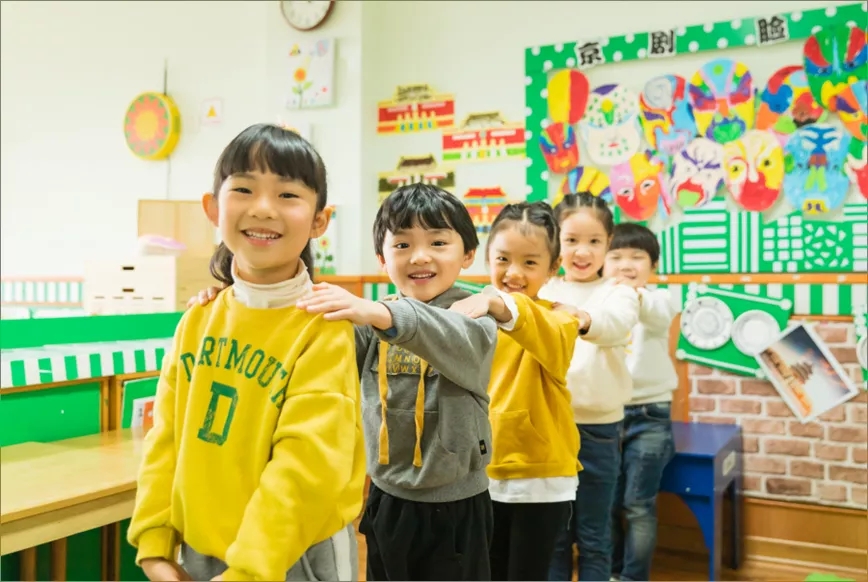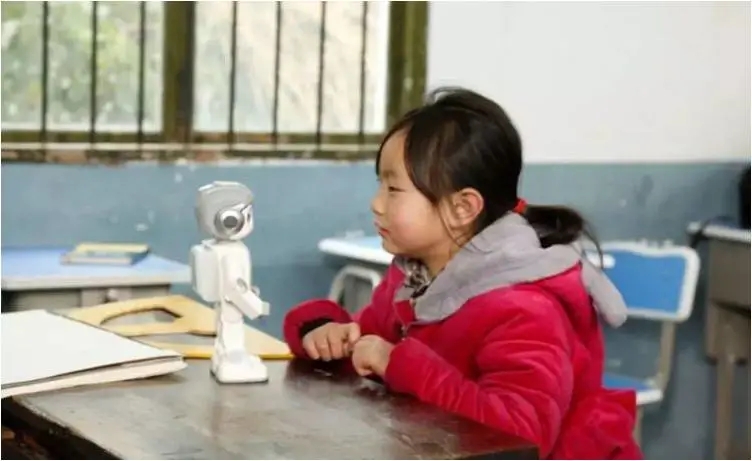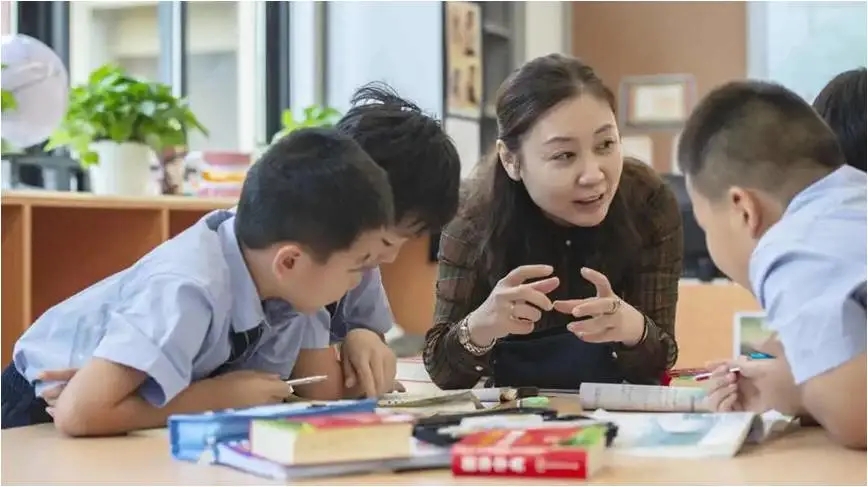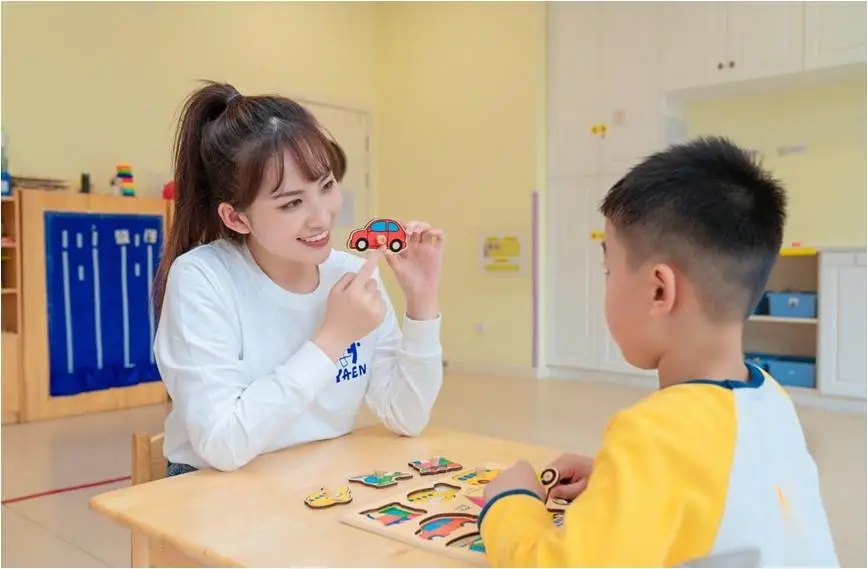这是 达医晓护 的第 3395 篇文章
上一篇我们介绍五到六岁孩子各阶段发育的科普。本次的主题是接着来看看在六到八岁的学龄儿童的正常发育轨迹,如何促进处于这个阶段的儿童发育,以及在什么情况下需要引起重视去看儿童发育专科医生。
 游戏和学习
游戏和学习
这个年龄的儿童开始玩复杂的游戏。孩子们经常把他们在学校或媒体上接触到的想法表现到游戏里。例如,你可能会发现自己正在为一名戴水肺的潜水员、一位摇滚明星甚至是可能是一位首相提供晚餐!
随着年龄增长,孩子比小时候更善于控制自己的行为和情绪,所以能更好地处理涉及游戏规则,对待赢、输以及进行公平的游戏。
孩子也喜欢交朋友,友谊给孩子们一种归属感,帮助他们学习和练习基本的社交技能,比如分享和协商。不过交朋友过程中有时也可能具有挑战性,因为朋友有时会专横或有点古怪的脾气。有时朋友甚至会把你的孩子排除在外。孩子也可能开始更多地与同性孩子玩耍。总之,孩子的人际关系大部分都是积极的,但要留意是否有霸凌的迹象。
情感发展
孩子们会想要取悦生活中重要的成年人,比如父母和老师。所以现在开始要注意以“正确的方式”做事对你的孩子非常重要。另一方面,有时你的孩子可能显得过于自信。
孩子比较在意别人的观点和看法,容易敏感和感觉尴尬。事实上,当家人和朋友烦恼忧虑时,你的孩子有很多同理心。但有时孩子可能会过于自责和自我批评,这种时候需要家长的帮助来专注于他们做得好的事情。
您也可能会发现,您的孩子更容易关注关于灾难的新闻和令人伤心难过的新闻故事。这种意识的增强会引起一些焦虑和恐惧,所以和孩子谈论这些棘手的话题有助于他们理解这些事情。
思维
孩子们对因果关系有了更好的理解。尽管有时他们似乎仍然以自我为中心,但他们开始看到自己的行为是如何影响他人的。
记忆力也在提高,你的孩子会根据大小、形状和颜色对物体进行分组。同时,对数字的理解也在提高,能做诸如加法和减法等简单的数学题。
当你的孩子不断探索世界时,我们要为迎接许多问题做好准备。他们充满了好奇,可能会自己做一些小“实验”——例如,先用肥皂填满马桶,然后冲马桶,想看看会发生什么。
在这个年龄阶段开始孩子会有很多事情在忙,所以他们很容易分心,忘记了你的小要求和指示。
语言和交流
孩子们会遵循更复杂的指令,用语言来表达他们的想法和感受。八岁左右的孩子每天可以学习大约20个新单词,其中大部分是通过自己阅读或者别人念给他们听。您的孩子现在会和你有更长更复杂的对话,而且可以完全让人理解。
到了八岁,你的孩子正学会了表达自己的观点,在讲故事时充满了活力和情感。你的孩子可以看懂简单的食谱,根据日常生活写故事,写电子邮件或发短信息,晚上在床上可以自己独立阅读。
运动
在这个年龄段,孩子们喜欢探索自己的身体机能极限,发展更多的运动技能,比如之字形跑步游戏、跳下台阶、做侧手翻和接住小球等。孩子在同时运用数项粗大运动技能的表现越来越好,比如边跑步边踢球或跳绳。这些运动技能的获得取决于孩子练习的频率。舞蹈课、网球和足球等结构化运动对孩子的体育技能都有帮助,同时跑步、踢腿、投掷、侧手翻等锻炼的机会也同样重要。
精细运动技能在这个阶段也得到了很好的发展,孩子现在可以在没有大人的帮助下自己刷牙和做其他日常卫生工作。你的孩子可以剪出不规则的形状,在学校课本的横线上写较小的字母。
日常生活和行为
在这个年龄,孩子生活的全部就是家庭、学校、朋友和课外活动。他们可能会喜欢收集像足球卡片、贝壳或小玩偶之类的东西。
目前孩子正处于形成道德与价值观的时期,他们可能会对事情是对还是错有强烈的看法。孩子们也会更清楚别人正在做什么,这可能会导致类似孩子有“他们比我更擅长绘画”的比较,或者抱怨兄弟姐妹得到的东西更多。
孩子们的独立性更强了, 他们会希望在可以做和不可以做的事情上有更多的发言权。作为这种独立性的一部分,他们可能会喜欢在家里做点家务——至少有时是这样!但对他们来说很重要的仍然是父母可以多花点时间和他们在一起。
 在六到八岁这个年龄阶段,孩子可能还会:
在六到八岁这个年龄阶段,孩子可能还会:
喜欢讲笑话,谈论他们有的技能或行为——例如,“我一次能吃10个汉堡包!”
数字和单词会写得更准确,但仍可能混淆某些字母,例如b/d和p/g
阅读能力强于拼写能力
开始理解金钱的价值,会喜欢数钱和存钱
开始对他们的外表、衣着或发型流行趋势感兴趣
更好地分辨幻想和现实之间的区别
对使用电子产品感兴趣
明白大众期望女孩和男孩因其性别不同所表现出特定不同的行为方式。
 如何促进五岁到六岁儿童发育?
如何促进五岁到六岁儿童发育?
1.通过承认孩子的优点和长处和积极品质,培养他们的自尊和自信。有时,孩子们在小学阶段会自我批评并常常与他人比较,他们的自尊心会下降。
2.让你的孩子看到你尝试新事物和犯错误。这有助于你的孩子理解学习和提高过程中经常会犯错误,但关键的点是永远不要放弃。
3.给孩子机会去探索和学习,无论是室内的还是户外的。在室内,他们可以用杯子、温度计、放大镜和储物罐等东西来做实验。在户外,你们可以一起当地的公园或自然保护区探险。
4.给孩子留出一些自由玩耍的时间。在这个年龄,玩耍仍然很重要。让孩子们自己选择他们想如何度过这些自由游戏时间。他可能想出去玩球,跳绳或者呆在室内画画。
5.和孩子一起读书。阅读对于语言能力的发展仍然非常重要。当你的孩子学习阅读时,试着让他读给你听。你也可以一起进行读写活动,比如讲故事或自己写书。
6.鼓励你的孩子明白他行为的后果,学会从别人的角度看待事情。我们通过问孩子类似这样的问题启发他:“当你这样做的时候,你认为西西会感觉如何?”
7.与孩子交流想法并讨论重要问题。这有助于建立你与孩子的紧密关系,表明你关心他们,对他们的想法感兴趣。当孩子再长大一些后,允许他们在合适的时候参与一些家庭决策。
8.与孩子谈论平等对待男孩和女孩,以及做到尊重女孩和妇女。
 在什么情况下需要引起重视去看医生
在什么情况下需要引起重视去看医生
如果观察到六到八岁的孩子有任何一项下述情况的,需要带孩子去就医进一步评估。
说话时口吃或口齿不清
遵循指令有困难
发现交朋友很难
不会蹦蹦跳跳,不会单脚跳或双脚跳跃
长时间坐着不动有困难
对其他孩子很有攻击性
似乎害怕上学,或者拒绝上学
不能自己独立穿脱衣服
白天仍会尿湿或大便在身上
到八岁每晚仍然会尿床。
Child development at 6-8 years: what’s happening
Playing and learning
Your child’s play is complex now. At this age, children often play out ideas they've come across at school or in the media. For example, you might find yourself serving dinner to a scuba diver, a rock star – or maybe even the Prime Minister!
Because your child is better at controlling their own behaviour and emotions, your child copes better with games that involve rules, as well as with winning, losing and playing fair.
Your child also enjoys making friends and being a friend. Friendships give children a sense of belonging and help them learn and practise basic social skills like sharing and negotiating. Friendships can also be challenging because friends can sometimes be bossy or cranky. Sometimes friends might even leave your child out. Your child might also start to play more with children of the same gender. Most of your child’s relationships will be positive, but keep an eye out for signs of bullying.
Feelings
Children want to please the important adults in their lives, like parents and teachers. So you might notice that doing things the ‘right way’ becomes very important to your child. On the other hand, at times your child might seem over-confident.
Your child is easily embarrassed and sensitive to other people’s views and beliefs. In fact, your child has lots of empathy when family and friends are distressed. But at times your child can be very self-critical and might need your help to focus on the things they do well.
You might notice that your child is more aware of disaster news and distressing news stories. This growing awareness can cause some anxiety and fear, so talking about tough topics can help your child make sense of things.
Thinking
Children have a much better understanding of the relationship between cause and effect. They begin to see how their actions affect other people, although sometimes they still seem self-centred.
Memory is also improving and your child can group objects according to size, shape and colour. Your child has a good understanding of numbers and can do simple maths problems like adding and subtracting.
Be prepared for lots of questions as your child keeps exploring the world. Your child might do small experiments to see how things work – for example, fill up the toilet with soap and flush it, just to see what happens.
There’s a lot happening at this age, so don’t be surprised if your child gets distracted easily and forgets small requests and directions from you.
Talking and communicating
Children can follow more complex directions and use language to explore their thoughts and feelings. The average eight-year-old learns about 20 new words each day, mostly through being read to or reading. Your child now has longer and more complex conversations, and you should be able to understand all of their speech.
By eight, your child is learning to voice opinions and has lots of energy and emotion when telling stories. Your child can follow a simple recipe, write stories based on daily life, write an email or instant message, and read independently in bed at night.
Moving
At this age, children enjoy testing their physical limits and developing more complex moving skills, like running in a zig-zag pattern, jumping down steps, doing cartwheels and catching small balls. Your child is getting better at combining gross motor skills like running to kick a ball or skipping while turning a rope. These physical skills depend on how often your child practises them. Structured sports like dance classes, tennis and soccer all help, but lots of opportunities to run, kick, throw, cartwheel and more are just as important.
Fine motor skills are well developed now, so your child can now brush teeth and do other daily hygiene tasks without your help. Your child can cut out irregular shapes and write smaller letters inside the lines in school books.
Daily life and behaviour
At this age, your child’s life is all about family, school, friends and after-school activities. Your child might enjoy collecting items like footy cards, shells or small figurines.
Your child’s morals and values are developing, and your child might share strong opinions about whether things are right or wrong. Children will also be more aware of what others are doing. This might lead to comparisons like ‘They're better at drawing than me’ or complaints about siblings getting more of something.
Children are even more independent and want more say in what they can and can’t do. As part of this independence, they might enjoy doing more chores around the house – at least sometimes! But spending time with you is still important to them.
At this age, children might also:
·like to tell jokes and talk up their skills or behaviour – for example, ‘I can eat 10 hamburgers at once!’
·write numbers and words more accurately, but they might still confuse some letters – for example, b/d and p/g
·have better reading than spelling skills
·begin to understand the value of money and enjoy counting and saving
·take more interest in their appearance and in clothing or hairstyle trends
·be better at telling the difference between fantasy and reality
·be interested in using technology and having screen time
·understand that people often expect girls and boys to behave in certain ways because of their gender.
Helping child development at 6-8 years
1.Build your child’s self-esteem and self-confidence by recognising their strengths and positive qualities. Sometimes children’s self-esteem goes down in the primary school years as they become more self-critical and compare themselves with others.
2.Let your child see you trying new things and making mistakes. This helps your child understand that learning and improving are all about making mistakes, but the key thing is to never give up.
3.Give your child opportunities to explore and learn, inside and outside. Inside they can experiment with things like cups, thermometers, magnifying glasses and jars for storing things. Outside you could explore your local park or nature reserve together.
4.Set aside some time for free play. Playing is still very important at this age. Let your child choose how they want to spend free playtime. Your child might want to go outside and throw a ball, jump rope or stay indoors and draw.
5.Read with your child. Reading is still very important for literacy development. As your child learns to read, try having your child read to you. You can also try literacy activities like telling stories or making your own book.
6.Encourage your child to be aware of the consequences of behaviour and see things from other people’s points of view. You can do this by asking questions like, ‘How do you think Xixi feels when you do that?’
7.Share ideas and discuss important issues with your child. This helps you connect with your child and shows that you’re interested in their ideas. As your child gets older, allow them to join in family decision-making where appropriate.
8.Talk with your child about treating boys and girls equally and respecting girls and women.
When to be concerned about child development at 6-8 years
·has a stutter or lisp when talking
·has difficulty following instructions.
·finds it hard to make friends
·can’t skip, hop or jump
·has trouble sitting still for a long time
·is aggressive with other children
·seems to be afraid of going to school, or refuses to go to school.
·can’t get dressed or undressed independently
·experiences daytime wetting or soiling
·still has regular night-time wetting at eight years.
作者:澳大利亚墨尔本大学医学院儿科博士
百汇医疗(中国)儿科医师
蒋本然




 扫码下载APP
扫码下载APP

 科普中国APP
科普中国APP
 科普中国
科普中国
 科普中国
科普中国